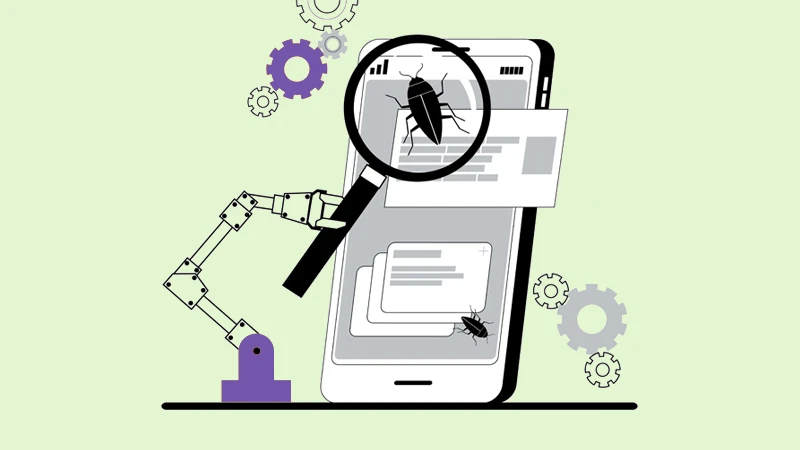How QA Automation Transforms Software Testing: Exploring The Top Benefits
Assuring the quality and stability of software is especially crucial in today's evolving landscape. To address the challenges of quick development cycles and ever-evolving technology, businesses are increasingly resorting to QA automation.
By utilizing automation technologies and frameworks, QA teams may optimize their testing procedures and obtain superior outcomes. Below is everything you need to know about the top advantages associated with QA automation and how it enhances software testing.
Streamline Resource Utilization
Manual testing sometimes needs substantial time and effort, especially when working with enormous and sophisticated systems. QA automation streamlines the usage of resources by decreasing the manual labor necessary for testing. Additionally, automated tests may be conducted in parallel on many machines, allowing for rapid test execution and quicker response. With automation, QA teams may optimize their resources, assign them more efficiently, and reach greater production levels.
Tackle Quality Assurance Issues
Quality assurance (QA) is a vital component of software development, and automation serves as an essential aspect in addressing QA difficulties. Automated testing offers consistent and repetitive test execution, lowering the odds of human mistakes and thus enhancing accuracy. Moreover, by automating repetitive processes, QA experts may focus on more complicated and crucial parts of testing, such as exploratory testing and the development of a solid test strategy. This shift in focus enhances overall QA efficiency and effectiveness.
As a result, the testing process becomes more efficient and scalable. Before leveraging automation, teams should explore more tools for QA testing to understand what is the right tool for the project that enhances test coverage and provides detailed reports. This approach not only improves product quality but also allows QA engineers to focus on complex scenarios, optimizing both time and resources in the software development cycle.
Acquire Comprehensive And In-Depth Testing
Manual testing may often overlook some test situations owing to human limitations. QA automation offers extensive and in-depth testing by performing a massive number of test cases reliably and frequently. With the integration of AI in Software Testing, automated systems can now intelligently detect patterns, predict potential failures, and adapt test cases dynamically, further enhancing test coverage and accuracy.
Automation tools may recreate real-world events and execute sophisticated computations, data comparisons, and simulations that are normally unfeasible for manual testing. As a consequence, QA teams may achieve larger test coverage and uncover more issues, increasing overall software quality.
This is particularly crucial when firms look to develop medical software, where accuracy and thorough testing are paramount to ensure patient safety and regulatory compliance.
Expedites Time-To-Market For Solutions
In today's competitive industry, firms aim to offer software solutions rapidly. QA automation expedites time-to-market by expediting the testing process. Automated tests may run continually, thereby guaranteeing that new features and bug fixes do not create regressions or compatibility concerns. By automating repetitive and time-consuming tests, enterprises may further dramatically cut testing cycles and deploy software faster, earning a competitive edge.
Shorter Feedback Loops With Enhanced Insights
Prompt feedback is critical for agile development methods. QA automation drastically shortens feedback loops by giving speedy test results. Automated tests can be conducted on-demand or as part of a continuous integration/continuous delivery (CI/CD) pipeline, thus enabling developers to acquire immediate feedback on code changes. This rapid input enables speedier bug discovery and resolution, decreasing the time and effort necessary to resolve issues in later phases of development.
Decrease Dependency On Specialized Skills
Manual testing generally involves specific skills and topic knowledge. By embracing QA automation, firms can reduce their dependency on a restricted pool of competent employees. Automated tests may be written and conducted by a greater spectrum of team members, encompassing testers, developers, and even company executives. This democratization of testing allows the whole team to contribute to the quality assurance process and enhances communication across different positions within the company.
Optimize Precision And Eliminate Human Errors
Manual testing is prone to human mistakes, which can lead to overlooked faults and false positives or negatives. QA automation boosts precision and reduces human mistakes by conducting tests precisely and reliably. Automation technologies can do complicated computations, data validations, and comparisons with precision, lowering the possibility of human mistakes. This greater precision leads to more dependable test findings and higher software quality overall.
Simultaneous Testing On Multiple Platforms And Devices
In today's cross-platform and multi-device scenario, it is vital to assure software compatibility across diverse contexts. QA automation provides for simultaneous testing on various platforms and devices, considerably decreasing the time and effort necessary for compatibility testing. Automation tools and frameworks offer cross-platform testing, thus allowing enterprises to check their software on numerous operating systems, browsers, and mobile devices quickly.
Wrapping Up
Using chatgpt for the test automation process offers various benefits to the software testing process. From addressing quality assurance concerns, simplifying resource utilization, promoting comprehensive testing, and reducing feedback loops, to much more, QA automation can help firms gain a competitive edge.
Furthermore, by utilizing QA automation, enterprises may drastically improve their testing methods, boost software quality, and offer dependable solutions to their clients. For those looking to stay updated on the latest trends and best practices, exploring blogs on automation testing can provide valuable insights into optimizing AI-driven testing strategies.









